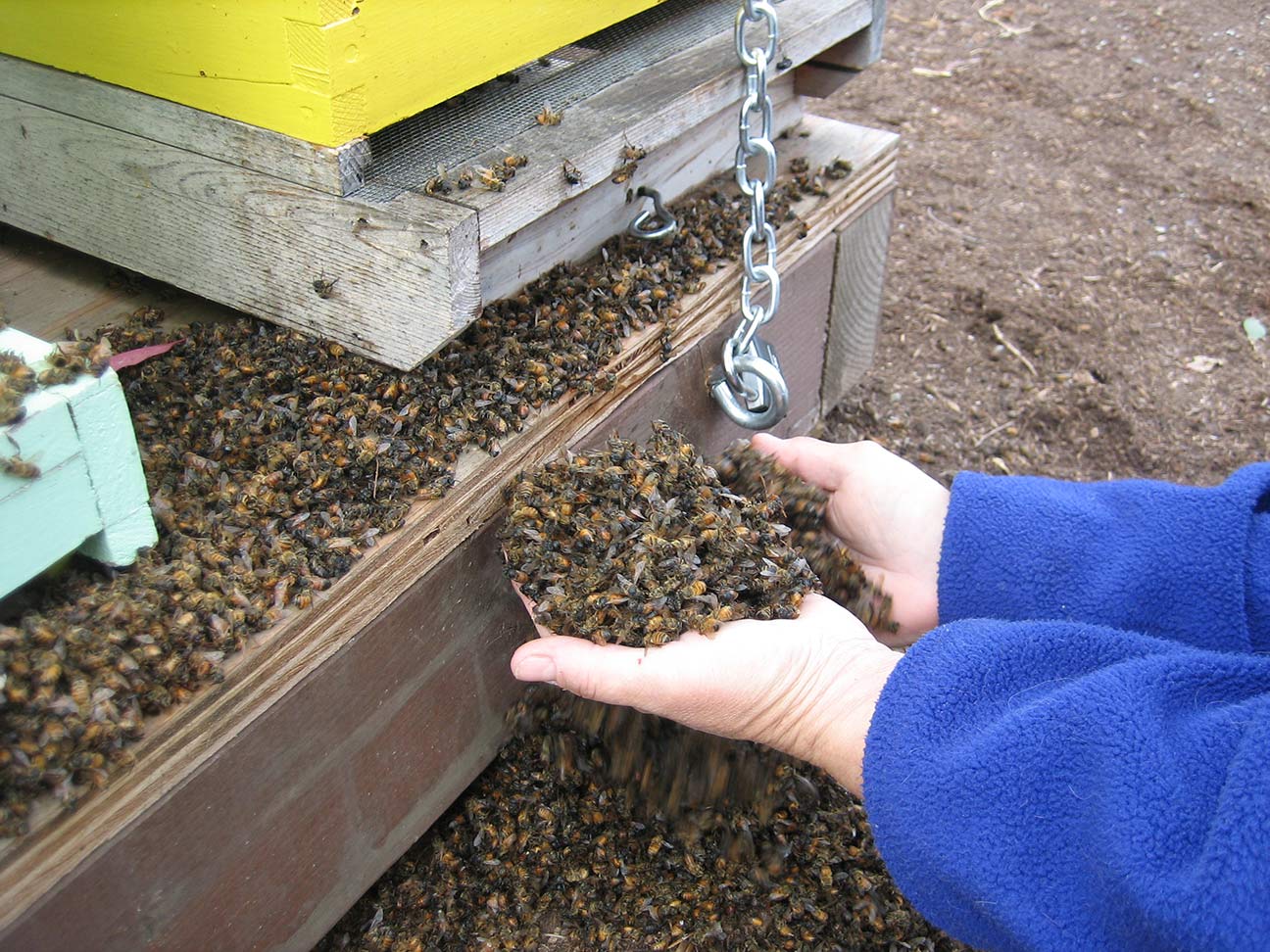What’s killing the bees?
Despite their many impressive skills and tight social cohesion, honeybees are under threat. In many parts of the world, large numbers of colonies have been lost, a syndrome some have referred to as colony collapse disorder (CCD). The cause or causes of this phenomenon—where the majority of worker bees in a colony disappear, leaving behind plenty of food and a few nurse bees to care for the queen and the remaining infant bees—are not fully understood. It’s a big problem. In the United States, an estimated 10 million beehives had been wiped out by 2013, worth around $2 billion dollars, in the six years since bee colonies first began experiencing declines.
Scientists initially assumed a single cause of CCD, but most now conclude that there is a long list of factors that combine to trigger colony collapses. Although the term CCD gained traction in the media over several years, CCD is still not fully defined. There is now some agreement among scientists to move away from the term because it basically refers to only a mass loss event.

Irrespective of the term that is used to refer to large scale losses of honeybee colonies, research is focusing on identifying the various factors involved. In 2016, the first global assessment of the state of the world's pollinators was released by an international team of 77 experts. They drew their results from the findings of approximately 3000 scientific papers, and also incorporated indigenous and local knowledge from over 60 locations around the globe. The report noted that the experts were concerned by declines, and summarised the numerous factors responsible. These included land-use change, intensive agricultural management, pesticide use, environmental pollution, invasive alien species and climate change. As if this list wasn't long enough, honeybees can host a large number of different parasites, such as mites, viruses, bacteria and fungi, and their vulnerability may be increased by over-work and poor bee-keeping practices.
There is still some hope for the humble bee. With the increased media attention and a dollar value placed on their pollination services over the past decade, governments and the wider public are now beginning to understand some of the issues affecting bees and why it is so important to restore bee health across the planet.





